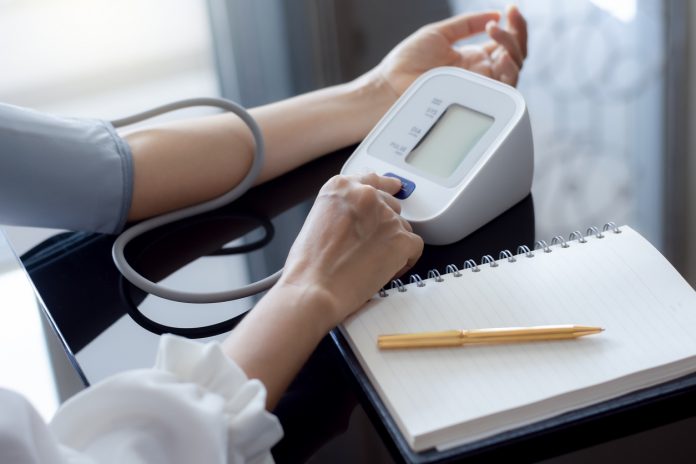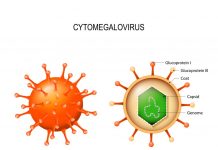According to an article, entitled “What Is High Blood Pressure,” posted at The National Heart Lung and Blood Institute, dated November 2008, high blood pressure (HBP), also, known as hypertension, is a severe illness which can, possibly, lead to heart failure, stroke, coronary heart disease, kidney failure and other potential health problems.
Blood pressure is the force or pressing of blood against the walls of your arteries. This occurs when the heart pumps out the blood. When the blood pressure force is too high and remains high for an extended period of time, it can cause harm to your heart and other parts of your body.
Your blood pressure, however, is determined by how much blood your heart pumps and according to how resistant your arteries are to the blood flow. If your arteries are narrow, your heart will pump more blood resulting in a higher blood pressure.
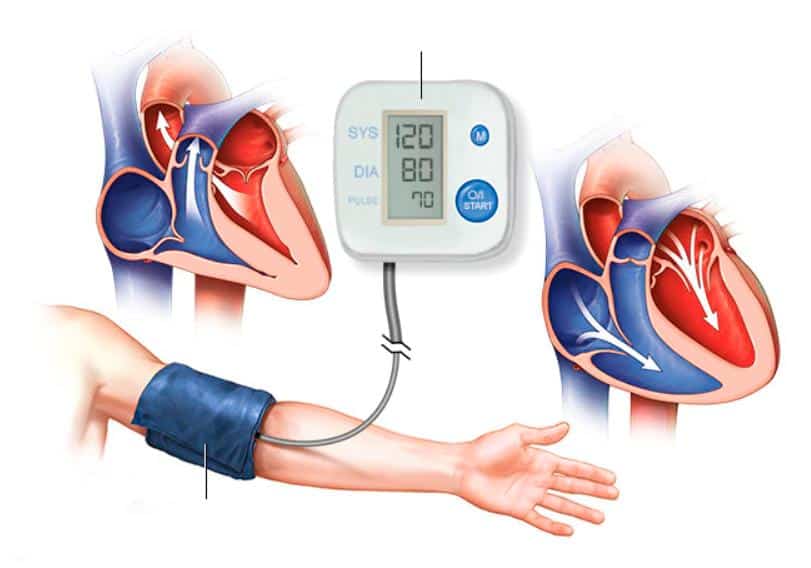
Serious health risks can occur with uncontrolled high blood pressure. Two of the risks include stroke and heart attack.
The condition occurs, mostly, in adults. However, children are, oftentimes, at risk, as well, when they have unhealthy eating habits, a lack of physical activity or have health issues such as heart or kidney problems.
Causes of High Blood Pressure (Hypertension)
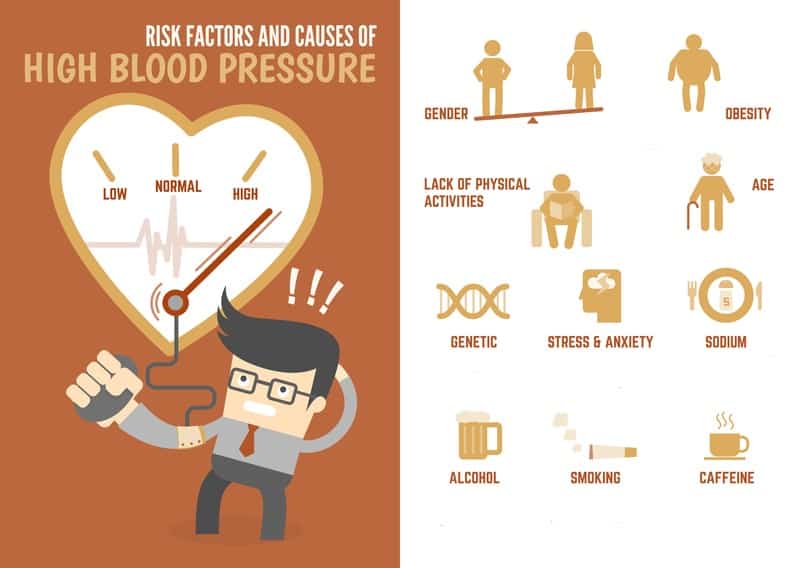
For many people, there is no, particular, cause for high blood pressure. The condition develops, progressively, as they grow older. This form of hypertension is called primary (essential) hypertension.
Secondary hypertension is caused by other underlying illnesses. It can also be a side effect of a variety of medications taken for other illnesses. When this form of hypertension develops, it tends to cause a higher blood pressure reading than primary hypertension.
Underlying Conditions Leading to High Blood Pressure
Some underlying conditions that can cause secondary hypertension include the following:
- Congenital defects in your blood vessels
- Adrenal gland tumors
- Kidney problems
Drugs and Medications That Lead to Secondary Hypertension
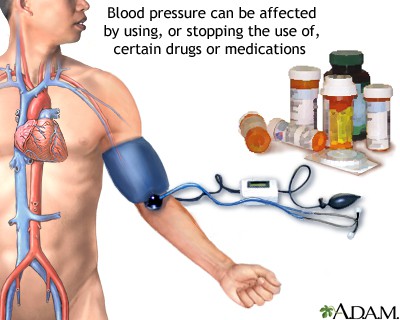
There are, also, a variety of drugs that can cause secondary hypertension. Some of these drugs include the following:
- Decongestants
- Cold remedies
- Over-the-counter pain relievers
- Prescription drugs
- Birth control pills
- Illegal drug use such as amphetamines and cocaine
There are several risk factors that can lead to high blood pressure. These risk factors include your family’s history of the condition, your age, race, problems with obesity, excessive salt (sodium) intake in your diet, lack of potassium, lack of physical activity, tobacco use, lack of vitamin D in your diet, stress, excessive alcohol consumption and chronic illnesses such as high cholesterol, sugar diabetes, sleep apnea, kidney disease and pregnancy.
Treatments for High Blood Pressure
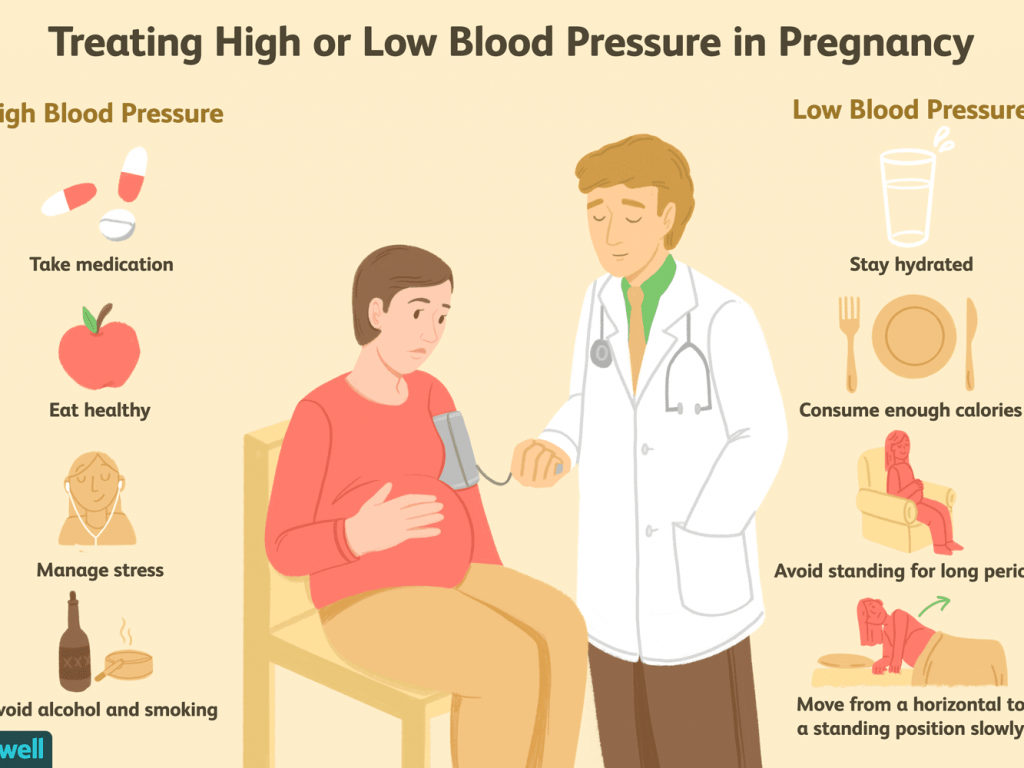
If you are diagnosed with high blood pressure, depending on your age and other factors and illnesses that you may have, your doctor may prescribe blood pressure medication to help your blood pressure reading to become as normal as possible.
However, regardless of the medications that your doctor may recommend and prescribe, it is important for you to instill immediate, daily lifestyle changes in order to control this dangerous condition.
Making the necessary changes such as starting a physical exercise program to lose weight, if you are overweight and eating a healthy diet that includes less sodium intake will help to lower your high blood pressure. If you smoke, you should stop smoking as well. In addition to lowering your blood pressure, you will feel much better overall.
Symptoms of High Blood Pressure
Most of the time, people with high blood pressure do not have any signs of the condition. There are no signs of high blood pressure even when the person’s blood pressure levels are at, severely, high levels. A person can have hypertension for several years and not even know it. As a result, the condition is, often, referred to as a silent killer. Few people experience possible indications of the condition such as dizzy spells, nosebleeds or dull headaches. Therefore, it is important to have your blood pressure checked regularly to do all you can to stay in good health.


